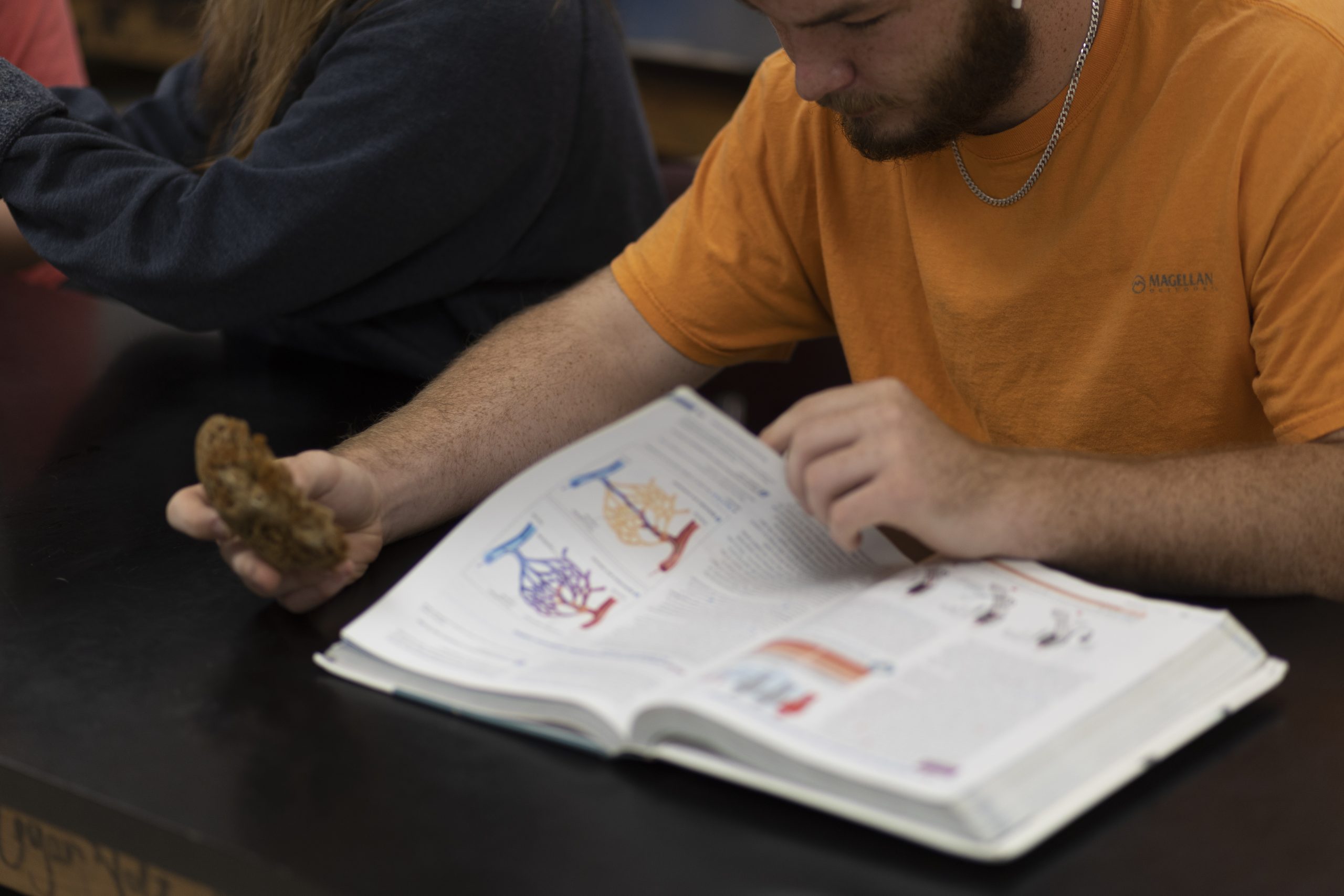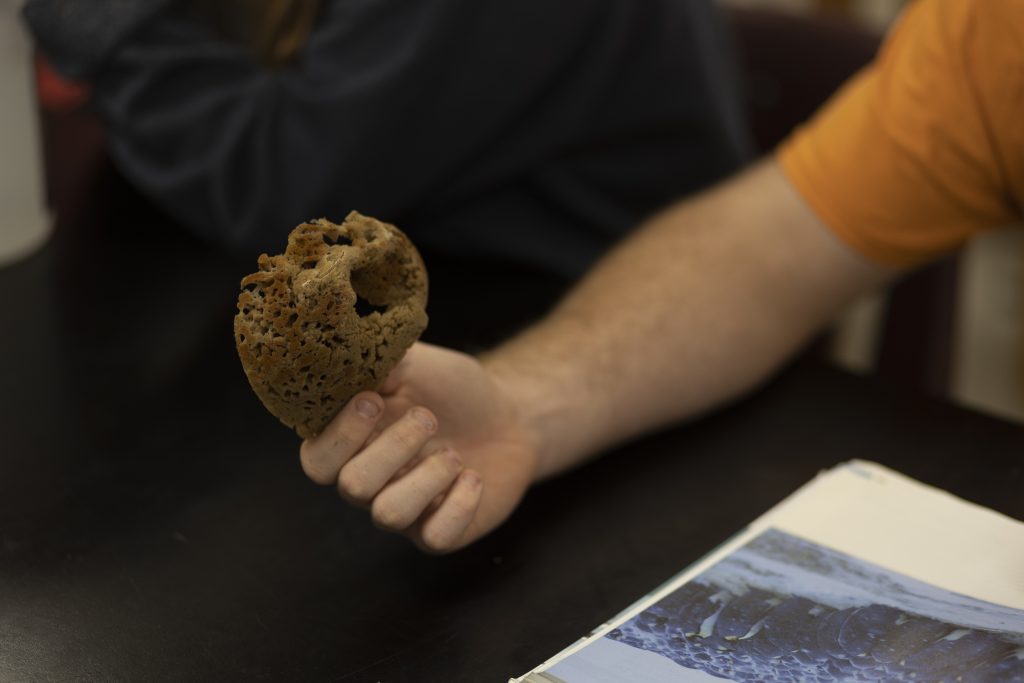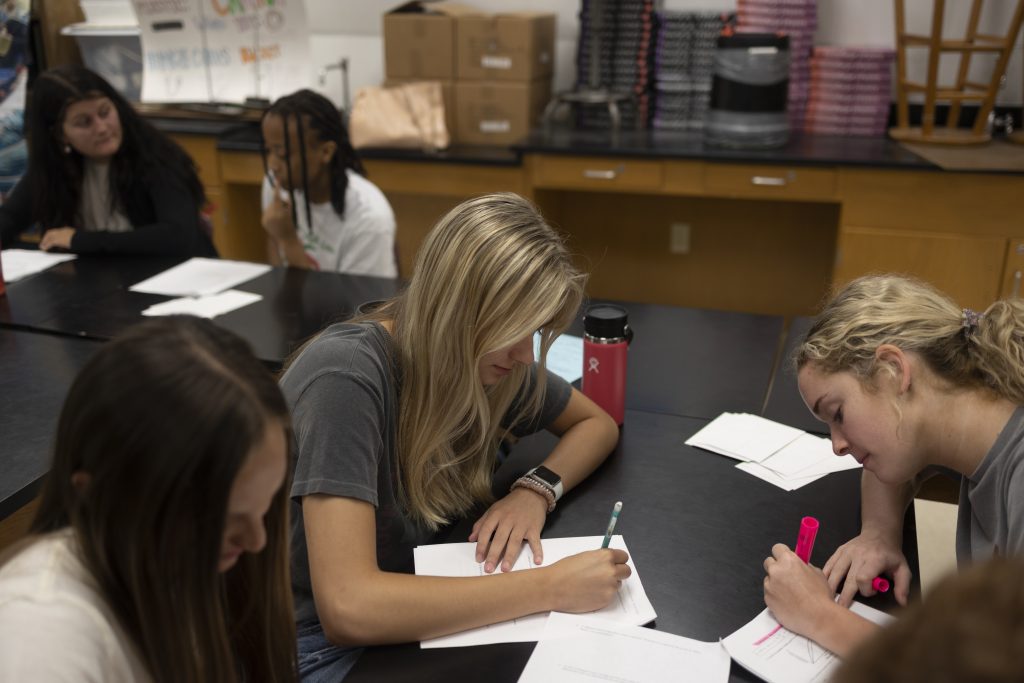Science

“The most incomprehensible thing about our universe is that it can be comprehended.” -Albert Einstein, Nobel laureate in physics, 1921
We feel this quote describes the deep-down philosophy of our science classes. Science is a subject that seeks to understand the natural world, meaning all the components of the physical universe — atoms, plants, ecosystems, people, societies, galaxies, etc., as well as the natural forces at work on those things. Elements of the natural world (as opposed to the supernatural) can be investigated by science, and our observations and experimentation’s seek to add to our knowledge.
A Matter of Science
We seek to expose the student to as many angles of our subject as possible. There is no one size fits all way to learn and we strive to help students find their way of learning. Our challenge this is to create a learning environment that makes it as easy as possible for the learner to see what he or she understands well and what he or she still needs to work on. We do this by putting the student in charge of their learning. We try to relate it to the real world as much as possible and not only to the real world but their real location as well as possible career interests. In class, students can expect to follow the motto of the best science teacher Valerie Felicity Frizzle, “Take chances, make mistakes, and get messy.”
Isaac Asimov said The most exciting phrase to hear in science, the one that heralds new discoveries, is not ‘Eureka!’ but ‘That’s funny…’
Parental Involvement
Communication is key for student learning. The number one way parents/guardians can get involved with the student learning experience is just by asking their student what he or she did in class that day. Students “reteaching to retelling” what they learn is a way to solidify in their mind the knowledge obtained.

Samuel Beckett said, “Ever tried. Ever failed. No matter. Try again. Fail again. Fail better.” We as teachers strive for that moment where students realize that a miss-attempt doesn’t mean failure in the worlds sense of the term but you have added to your knowledge like Edison and his 1000 ways to not make a light bulb filament. And then that one time where they finally get it, the “Ah-ha” moment no matter how small or how many times makes it all worth it.”
-Lucas Jones, Head of Science Department at Hardin County High School

Physical Science
Physical Science is the study of how our bodies works, what we feel, smell, see, and interact with each day. Physical science is intended to be a foundational class for other high school science classes like chemistry and physics. Fundamental concepts of chemistry will be explored each day as we experiment, question, and learn about the physical world around us. Students should expect to get their hands dirty and their minds on science in this class as we explore questions like: Why does wood float? What variables affect the flight of a paper airplane? How do police agencies identify unknown substances found at crime scenes?
Tools We Use
Observation, experimentation, forming hypothesis, and analyzing results are all key components of the scientific method, life, and the classroom. Students should expect to be challenged in labs, computer simulations, and classroom discussions as we learn more about the physical world around us.
“I love seeing students be successful, but I also love seeing students learn. Some of the most enjoyable moments in the years I’ve been teaching have been seeing students struggle, and struggle, and struggle some more, and finally have that lightbulb moment where it all makes sense!”
– Lucas Jones, Physical Science

